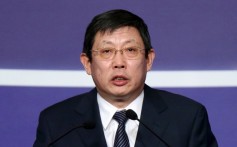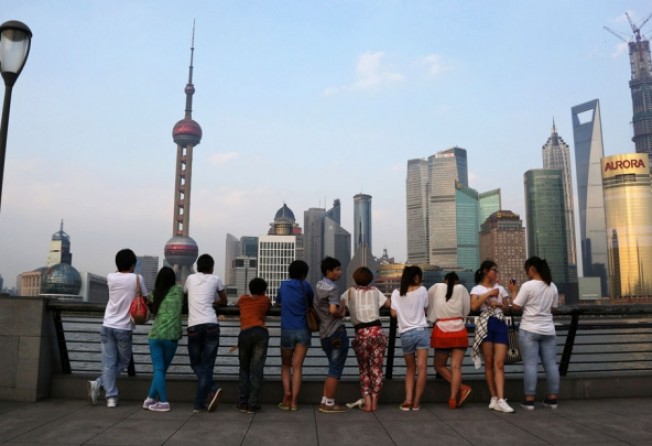
Shanghai sees global status via new free-trade zone
City banks on creation of mainland's first free-trade zone to put it among the world's top financial centres, leapfrogging HK as a financial hub

Shanghai officials are banking on its role as the mainland’s first free-trade zone to put the city among the world’s top financial centres.
Under the plan, endorsed by the State Council on Wednesday, Shanghai is expected to allow companies to freely convert foreign exchange within specified areas of the city while allowing free capital and commodity inflow for the entire city.

Yang Jianwen, a researcher at the Shanghai Academy of Social Sciences, said: “The free-trade zone could result in tremendous changes in the Asia-Pacific trade and finance sectors. Shanghai officials are taking a long view and have started drawing up a blueprint for the city’s development between 2014 and 2049.”
Shanghai’s ambitions to become the nation’s economic engine, leapfrogging Hong Kong as the dominant financial hub in the region are an open secret. The long-awaited policy incentive granted by the cabinet will only add heft to the city’s attempts to attract global capital and talent.
Shanghai will first upgrade and expand the existing “bonded” areas, where foreign merchandise can be brought in without import duty for the purpose of reprocessing, at Yangshan deepwater port, Waigaoqiao port and Pudong airport, to facilitate commodity and capital flows.
Qu Hongbin, the chief China economist at HSBC, said the trade volume at the Shanghai bonded zones were valued at more than US$100 billion last year, representing 3 per cent of the mainland’s total trade value.
The State Council said it hoped to expand the trial run of the free-trade zone nationwide, showcasing Shanghai as a glimpse of the future, finance-driven Chinese economy. Freed from customs authorities and financial regulators, the free-trade zone would be an investment magnet for global businesses, analysts said.
Financial institutions, property developers and logistic service providers have been given a shot in the arm as a result of the cabinet’s approval. Their stocks rose yesterday as the market bet that the pilot programme would increase the value of local property and help financial and transport service providers.
Jeremy Chapman, senior director of Colliers International’s industrial services division, said the free-trade zone would provide a tax-free environment for domestic and foreign companies in a major hub for their supply chains. “It will lead to a huge demand for logistics and quality warehousing spaces,” he said, although he did not expect to see any big impact on the residential market.
Beijing, it is believed, will use the free-trade zone as a testing ground for financial liberalisation.
Shanghai has been striving to adjust its industry mix, shifting focus from manufacturing to financial services as it chases long-term growth. Since 2008, the city has been among the nation’s slowest-growing provincial-level regions.
Lee Wee Liat, the head of property research at BNP Paribas Securities, said the approval will boost the economy of Pudong as well as Shanghai as a whole, but the free-trade area plan “will take some time, at least 10 years”.
However, local businesses have reasons to cheer as they prepare for busy times ahead.
Zhu Zhengrong, the owner of a logistics firm, said: “I am now thinking of increasing staffing to meet the increasing demands for our services. What would a free port be like? Just take a look at Hong Kong and you will get an answer.”